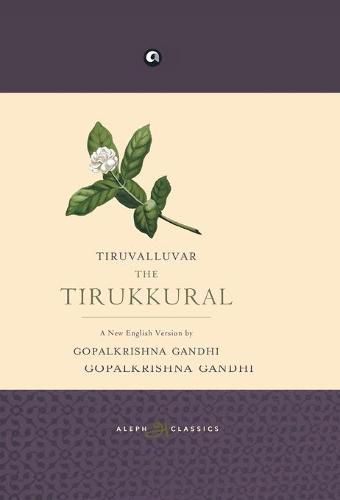Readings Newsletter
Become a Readings Member to make your shopping experience even easier.
Sign in or sign up for free!
You’re not far away from qualifying for FREE standard shipping within Australia
You’ve qualified for FREE standard shipping within Australia
The cart is loading…






This title is printed to order. This book may have been self-published. If so, we cannot guarantee the quality of the content. In the main most books will have gone through the editing process however some may not. We therefore suggest that you be aware of this before ordering this book. If in doubt check either the author or publisher’s details as we are unable to accept any returns unless they are faulty. Please contact us if you have any questions.
The Tirukkural (honoured Kural) is one of the world’s greatest literary and philosophical masterpieces. Composed in Tamil by Tiruvalluvar sometime between 2 BCE and 5 CE, its succinct couplets seek to explain and guide the reader through life’s various situations: political, spiritual, domestic and social. Not much is known about Tiruvalluvar-he is believed to have been one or more of the following: a weaver, an ascetic, a teacher, a minister, a seafarer or even a king. What is indisputable, as Gopalkrishna Gandhi says in the preface, is that he was ‘a clear thinker’, ‘a sharp observer of life’ and ‘a master of his language and…complex poetic forms’. ‘Kural’, in Tamil, means ‘short’. Each of the Tirukkural’s 1,330 verses holds its meaning tightly, gives its message in something like telegraphese. Often called the universal book of principles, the work is organized into 133 chapters and three books. ‘Book I: Being Good’ is aimed at householders and sets out the principles of leading an ethical life. ‘Book II: Being Politic’ is a manual for rulers and statesmen on the qualities and duties of leaders, aspects of governance, military strategies, and methods to acquire wealth honestly. ‘Book III: Being in Love’ is a poetic exposition on love. It is presented from the points of view of both the man and the woman in different situations-from the moment of falling in love, through the pain of separation to the joy of reconciliation.
$9.00 standard shipping within Australia
FREE standard shipping within Australia for orders over $100.00
Express & International shipping calculated at checkout
This title is printed to order. This book may have been self-published. If so, we cannot guarantee the quality of the content. In the main most books will have gone through the editing process however some may not. We therefore suggest that you be aware of this before ordering this book. If in doubt check either the author or publisher’s details as we are unable to accept any returns unless they are faulty. Please contact us if you have any questions.
The Tirukkural (honoured Kural) is one of the world’s greatest literary and philosophical masterpieces. Composed in Tamil by Tiruvalluvar sometime between 2 BCE and 5 CE, its succinct couplets seek to explain and guide the reader through life’s various situations: political, spiritual, domestic and social. Not much is known about Tiruvalluvar-he is believed to have been one or more of the following: a weaver, an ascetic, a teacher, a minister, a seafarer or even a king. What is indisputable, as Gopalkrishna Gandhi says in the preface, is that he was ‘a clear thinker’, ‘a sharp observer of life’ and ‘a master of his language and…complex poetic forms’. ‘Kural’, in Tamil, means ‘short’. Each of the Tirukkural’s 1,330 verses holds its meaning tightly, gives its message in something like telegraphese. Often called the universal book of principles, the work is organized into 133 chapters and three books. ‘Book I: Being Good’ is aimed at householders and sets out the principles of leading an ethical life. ‘Book II: Being Politic’ is a manual for rulers and statesmen on the qualities and duties of leaders, aspects of governance, military strategies, and methods to acquire wealth honestly. ‘Book III: Being in Love’ is a poetic exposition on love. It is presented from the points of view of both the man and the woman in different situations-from the moment of falling in love, through the pain of separation to the joy of reconciliation.